
Senior writer Tina Hesman Saey is a geneticist-turned-science writer who covers all things microscopic and a few too big to be viewed under a microscope. She is an honors graduate of the University of Nebraska-Lincoln where she did research on tobacco plants and ethanol-producing bacteria. She spent a year as a Fulbright scholar at the Georg-August University in Göttingen, Germany, studying microbiology and traveling. Her work on how yeast turn on and off one gene earned her a Ph.D. in molecular genetics at Washington University in St. Louis. Tina then rounded out her degree collection with a master’s in science journalism from Boston University. She interned at the Dallas Morning News and Science News before returning to St. Louis to cover biotechnology, genetics and medical science for the St. Louis Post-Dispatch. After a seven year stint as a newspaper reporter, she returned to Science News. Her work has been honored by the National Academies of Sciences, Engineering and Medicine, the Endocrine Society, the Genetics Society of America and by journalism organizations.

Trustworthy journalism comes at a price.
Scientists and journalists share a core belief in questioning, observing and verifying to reach the truth. Science News reports on crucial research and discovery across science disciplines. We need your financial support to make it happen – every contribution makes a difference.
All Stories by Tina Hesman Saey
-
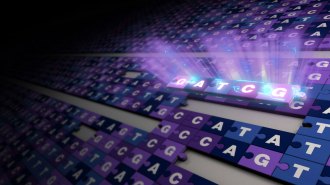 Genetics
GeneticsWe finally have a fully complete human genome
Finding the missing 8 percent of the human genome gives researchers a more powerful tool to better understand human health, disease and evolution.
-
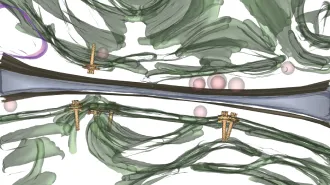 Microbes
MicrobesNew images reveal details of two bacteria’s molecular syringes
It’s unclear exactly how these species use their tiny injectors, but learning how they work could lead to nanodevices that target specific bacteria.
-
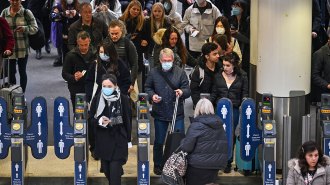 Health & Medicine
Health & MedicineHow I’ll decide when it’s time to ditch my mask
New COVID-19 masking guidelines are designed for communities not individuals, making a decision about safety difficult.
-
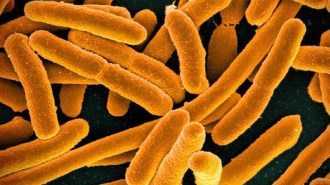 Life
LifeSome E. coli set off viral grenades inside nearby bacteria
A bacterial toxin called colibactin awakens dormant viruses embedded in bacterial DNA, but its ecological role is still unknown.
-
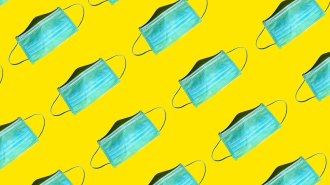 Health & Medicine
Health & MedicineHow to interpret the CDC’s new mask guidelines
Based on the CDC’s new metrics, most people no longer need to wear masks in most situations, but that could change.
-
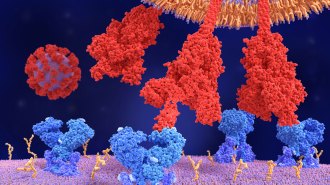 Health & Medicine
Health & MedicineHow omicron’s mutations make it the most infectious coronavirus variant yet
With its mishmash of mutations, omicron has a unique anatomy that has helped fuel its dominance.
-
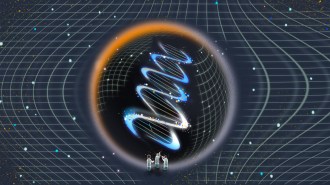 Genetics
GeneticsHow the Human Genome Project revolutionized understanding of our DNA
Completion of the Human Genome Project was a huge milestone, but there’s more work to do to ensure equitable access to the information in our DNA.
-
 Health & Medicine
Health & MedicineOmicron forces us to rethink COVID-19 testing and treatments
At-home rapid tests may miss the speedy variant early on, and some treatments, such as some monoclonal antibodies, no longer work.
-
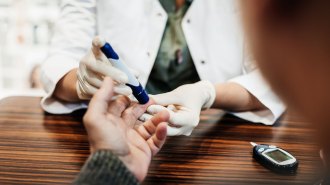 Health & Medicine
Health & MedicineThe coronavirus may cause fat cells to miscommunicate, leading to diabetes
Researchers are homing in on a surprising cause of high blood sugar in COVID-19 patients and possibly what to do about it.
-
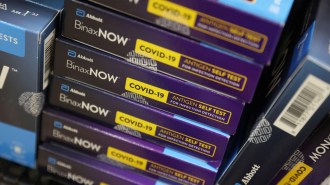 Health & Medicine
Health & MedicineCOVID-19 testing is complicated right now. Here are answers to 6 big questions
There are two major categories of COVID-19 diagnostic tests. Here’s what you need to know when deciding whether to take an at-home test or head to the doctor.
-
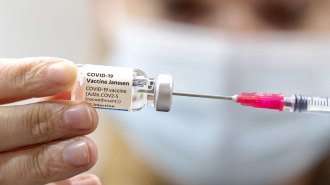 Health & Medicine
Health & MedicineThe CDC recommends mRNA COVID-19 vaccines over J&J’s, citing fewer risks
Pfizer’s and Moderna's vaccines are more effective and cause fewer serious side effects than Johnson & Johnson’s jab, new data show.
-
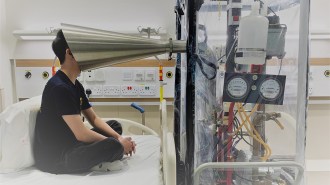 Health & Medicine
Health & MedicineWhy it matters that health agencies finally said the coronavirus is airborne
Recognizing that the coronavirus spreads through the air reinforced the importance of wearing masks and altered public health recommendations.